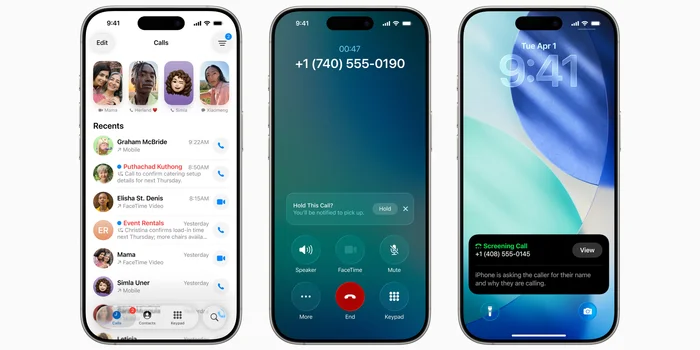
iOS 26 in the EU: neutered even before release

Apple's mobile operating system iOS 26 will be released in autumn. However, it is already clear that European users will have to make do with limited functions. The reason for this is Apple's reaction to the Digital Markets Act.
At this year's developer conference, Apple presented the latest version of its mobile operating system: iOS 26. In addition to the new Liquid Glass design, various other features will also be coming to the iPhones of this world in autumn. Now Apple has taken a step backwards - months before the final release in autumn. At least as far as the EU is concerned. Various functions that are to be rolled out with iOS 26 will not work in the EU. However, this does not affect Switzerland.
Which features are missing?
One function that EU users will probably not receive with iOS 26 at launch is the «Visited Places» function in Apple Maps. This function automatically records which places users have visited and stores this data locally on the device. Apple sees this function as a central element of the app. In future, it will be able to make personalised route suggestions or provide tips on the current traffic situation.
The ability to control iPhones directly from a Mac - known as iPhone Mirroring - also remains blocked in the EU. This function was already introduced in other markets in 2024, but is not accessible in Europe for competition reasons. This is related to the DMA's requirement that Apple must open up its technologies to third parties - the so-called «interoperability obligation». This is exciting for other big tech companies. However, Apple fears that such access rights could lead to privacy issues.
In addition, other functions such as «Live Activities» could be removed. This feature displays notifications from iPhone apps simultaneously on a Mac, which is closely related to iPhone mirroring.
Why do EU users have to do without these features?
The reason for this delay lies in the adaptation of the new functions to the EU's Digital Markets Act (DMA). This legal regulation forces big tech companies to achieve greater interoperability and fairer competition, which seems to present Apple with significant challenges.
Apple is citing security concerns in particular. Interfaces that can be used by third parties represent a potential security vulnerability. Whether and how Apple and the EU will reach an agreement in this regard is still up in the air.


I've been tinkering with digital networks ever since I found out how to activate both telephone channels on the ISDN card for greater bandwidth. As for the analogue variety, I've been doing that since I learned to talk. Though Winterthur is my adoptive home city, my heart still bleeds red and blue.
From the latest iPhone to the return of 80s fashion. The editorial team will help you make sense of it all.
Show all